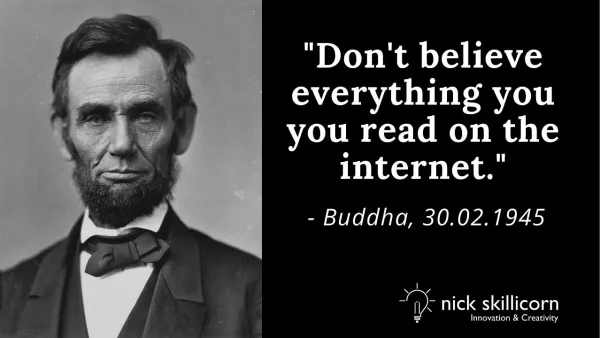
This image is flawed in at least five ways.
Can you find all of them?
The internet can be both a blessing and a curse when it comes to spreading ideas.
While it enables knowledge to be exchanged across borders, to billions of people, and at the speed of light, the question of trustworthiness arises.
There are thousands of people online who take great care in only showcasing information which has evidence to back it up. For example, the army of fact-checkers who keep Wikipedia accurate, hard-working journalists or scientific journals which are no longer limited by access to university libraries or subscriptions.
This is why you will always see my link directly to my sources when I write my articles about innovation and creativity. Evidence is of the upmost importance for you to trust what I write.
But unfortunately it is just as easy for anyone to make any claim they want, without any evidence to back it up. In some cases, lies and inaccurate information actually can be more appealing for certain people because it causes an emotional reaction rather than a rational one, allowing fake information to spread as it is shared between people
And as a result, misinformation like anti-vaccine rumours can spread quickly over the internet.
Especially if it is designed in a “share-first, think later” format like the image above.
So when you come across new ideas online, ask yourself three things:
- Does this information have a credible source?
- How does that source compare to other evidence from the scientific or journalistic community?
- Who would benefit from sharing misinformation?
Stay safe online.




